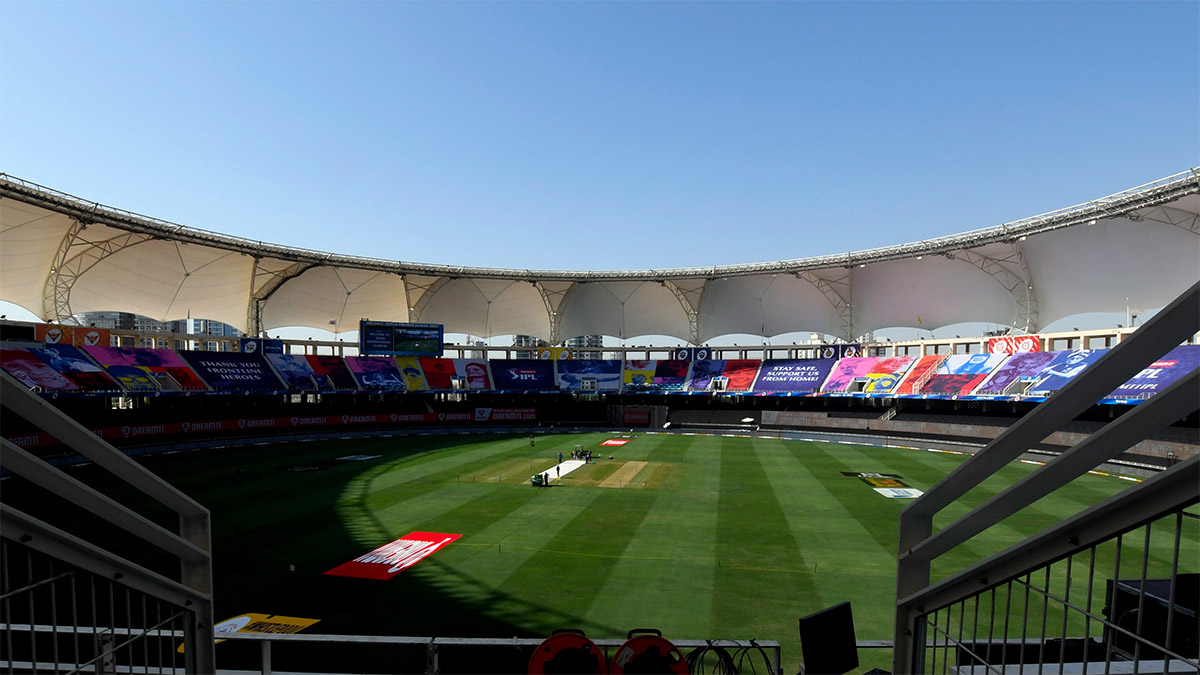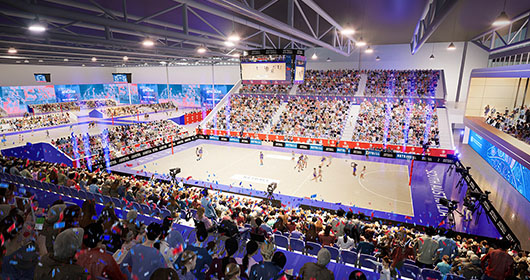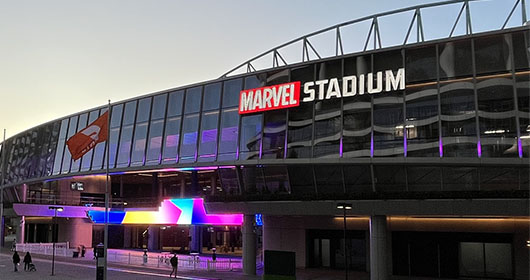Cricket stars on their return to play and empty stadiums

Quinton de Kock and Kagiso Rabada discuss how they have spent the last few months and playing cricket inside empty stadiums.
Such is the hectic nature of the cricketing schedule these days, Kagiso Rabada hardly knows what a break looks like.
A proven performer for South Africa in all formats, the 25-year-old bowler has spent any time off that he has been afforded from international matches playing cricket elsewhere, including for Kent in England and the Delhi Capitals in the IPL.
“I haven’t had a rest for the last five years,” he says.
But the sudden postponement of all cricket earlier this year, shortly after Australia’s ODI & T20 tour of South Africa, presented him and his teammates with an unfamiliar prospect: an entirely blank diary.
“This is the longest I’ve gone without a game in my international career,” says Rabada. “I took a break for a very long time. It’s been really refreshing, I’ve enjoyed it.
“I was involved in a podcast called The Viral Wellness and I kept myself busy with other stuff, too. Personal stuff and admin. I wasn’t in any rush to get back to the game.”
Quinton de Kock, who also shoulders the responsibility of being a key player for South Africa in all formats, was similarly grateful for the break.
De Kock is the Proteas’ white-ball captain, so knows that, once cricket gets started again, it is likely to be unrelenting.
“I’ve tried to keep up with my fitness but I haven’t really been watching or thinking about cricket,” says the South African wicket-keeper.
“Lockdown was pretty chilled for me. I did a lot of work on the farms and was kept busy with stuff that I haven’t had the opportunity to be doing during seasons.
“I haven’t picked up a bat. I can see that there’s going to be a backlog of cricket over the next few months and years so I took as big a break as I can.
“But, obviously, after a long break you do start missing it.”

The pair’s return to cricket will not be on the international stage, but in the IPL.
For every player involved in the competition, which runs between September and November, rather than its usual March-May slot, the lack of match practice and sharpness is unusual.
International stars, though perhaps a little jaded, have always been able to start recent franchise T20 campaigns in some sort of rhythm, rather than the opposite. Whoever deals with that unfamiliarity the best is likely to gain a major advantage.
“We have a responsibility to make sure that we’re ready to play,” says Rabada. “We are professional cricketers.
“People have different ways of making sure that they are ready, but I guess the one thing is to get some time on the legs. We need to dust the cobwebs off.”
“We’ve been able to train and get some match fitness for a few weeks before the tournament starts,” says De Kock, who will line up alongside Rohit Sharma for the Mumbai Indians.
“I think by the time the tournament starts I’ll be perfectly ready again. We have more than enough time to get back into the swing of things.”
It will be harder to prepare for the strange circumstances surrounding the matches, though.
Taking the tournament from India to the UAE means that the essence of the competition has fundamentally changed.
Matches are being played at three stadiums — the Dubai International Cricket Stadium in Dubai, the Sheikh Zayed Cricket Stadium in Abu Dhabi and the Sharjah Cricket Stadium in Sharjah.
And, while the tournament has started in empty stadiums, there remains hope organisers will be able to fill the stands up to 50 per cent.
International players will need to get used to playing in front of reduced crowds for some time to come, but nowhere will it be more obvious than during the 2020 IPL, when the feverish atmosphere everybody associates with Indian cricket will be noticeably absent.
“Everybody’s going to miss the atmosphere that it brings,” says De Kock. “Obviously every game is packed usually.”
“But it doesn’t bother me too much whether there is a crowd or no crowd. It’s going to be quiet, and I’ll miss the feeling in the stadium, but it’s not like I need it.”
Rabada agrees that the quality of cricket will be as high as ever, despite the sterile setting.
“It’s been interesting watching the international cricket in England,” he says. “In the end, you love cricket because of the skill as much as the crowds. As a cricketer I focus on my skills, and they should entertain people.
“The competitive juices are going to be flowing, whether there are crowds or not. Everyone is going to play to their full potential because it’s what we love doing.
“I don’t know if the hype will be the same but, from a competitive view, I don’t think it will change anything.”
Those competitive juices are crucial for Rabada, particularly in this competition. Running in to bowl at India’s biggest stars like Virat Kohli and MS Dhoni, with the frenzied crowd against you, is not for the faint-hearted.
Fortunately, Rabada is the type to relish such battles.
“Playing against guys like Kohli and Dhoni in front of amazing crowds, it’s something to really behold,” he says.
“It’s really hard to explain. You want to prove a point and they want to prove a point, too. Seeing how the crowd get behind those players is an experience that you cannot play down.
“It’s thrilling. It gets the adrenaline up, it gets you going.”
Elite sportspeople can get themselves going in any number of ways, so it’s no surprise that De Kock sees things differently.
While Rabada is renowned as an emotional cricketer, his international captain prefers to cut out the noise to focus on the job in hand.

“I don’t see anything to it,” he says. “I just see them as another person.
“Kohli is just human. Sure, they’re big guys in India, but we all have a badge, we’re after the same goals. I just see them as normal people.”
It makes sense that somebody who has always carried such responsibility on the cricket field has learnt to take the pressure off himself.
Having always combined the duties of wearing the gloves behind the stumps with operating as a key batsman, the 27-year-old has recently taken over as South Africa’s white-ball captain as well. Juggling those twin disciplines for Mumbai and South Africa along with his new leadership role could be seen as a daunting prospect by some.
“I’ve never found it too difficult,” he says. “People ask me how I’m going to captain, keep and bat all at once, but I’ve been keeping and batting my whole life. It’s just how it’s been. It’s not like I’m now being asked to bowl.
“I think if I’d become Test captain for South Africa that would have been difficult. It would have been too much of a responsibility. But I’m perfectly happy with the white-ball captaincy, I’ve done it before at Under-19 level. Balancing everything isn’t too difficult.”
After the longest break of their careers, cricketers are suddenly poised for an immediate transition from no cricket to a whirlwind of games.
As a result, it could be those with that kind of even temperament and adaptability that perform better than most.
Meanwhile, India is scheduled to tour Australia during the upcoming summer, and while the dates are yet to be confirmed, it appears likely that limited crowds will be able to attend the Melbourne Cricket Ground for the famous Boxing Day Test on December 26. Adelaide Oval, the SCG and the Gabba also are likely to host Test matches in the series. View upcoming cricket matches in Australia.
Quinton and Kagiso recently spoke to Betway in a discussion on their return to cricket.




